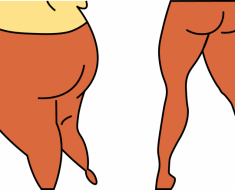Emma Morano turns 117 next month, and she has a secret. She loves eating eggs. Over 90 years of eating eggs mean’s she has had over 100,000 eggs in her lifetime, and she doesn’t plan on stopping anytime soon.
A brush with anemia in her twenties sent Emma to the doctor who prescribed eating three eggs a day, and her health never faltered again. But some people still believe that eggs contain too much cholesterol to be good for you. Simply put, they are wrong.
Eggs the super food
Eggs by themselves are some of the most nutritious food on the planet. A single egg contains Vitamin A, Folate, Vitamin B5, Vitamin B12, Vitamin B2, Phosphorus, Selenium, and reasonable amounts of Vitamin D, Vitamin E, Vitamin K, Vitamin B6, Calcium, and Zinc. As you can see, there’s hardly anything an egg does not offer. Including the fact that an egg is roughly 77 calories, 6 grams of protein and 5 grams of healthy fats, it’s easy to call it a super food.
Eggs and cholesterol

The problem that people have always seen with eggs is that they are high in cholesterol and they are not wrong. An egg contains about 212 mg of cholesterol, which is over half of your daily recommended amount. But proponents of eggs like to point out that cholesterol in the diet doesn’t mean higher cholesterol in the blood. Our livers, which produce cholesterol every day, make less when we eat eggs. One study determined that 70 percent of people who eat eggs have no effect on their cholesterol levels whatsoever.
In fact, eggs have been shown to increase the ‘good’ form of cholesterol known as High-Density Lipoprotein or HDL and are linked with reduced heart disease and stroke.
Eggs and antioxidants
In addition to all the nutrients, an egg hosts two critical antioxidants that have a fundamental impact on your eye health. Lutein and Zeaxanthin are found in large amounts in egg yolks and tend to congregate in the eye, and high levels of both of these reduce the risk of cataracts and macular degeneration. It’s been found that eating just 1.3 egg yolks a day for 4.5 weeks increased blood levels of Lutein by nearly 50 percent and Zeaxanthin by 140 percent.
Eggs and weight loss

Eggs bring so much to the table, they are delicious and filling and can even contribute to a diet in which weight loss is the goal. In one study done at the Rochester Centre for Obesity Research, it was found that eating eggs for breakfast helps limit overall caloric intake by as much as 400 calories per day. Not only are eggs low in calories but they are also high in protein, so you can get a lean snack out of eggs without tipping the scales.
In an eight-week study, overweight men and women on a diet were given either a breakfast of two eggs or bagels. The group that had eaten the eggs every day had a greater weight loss by more than 65 percent, 34 percent reduction in waist circumference and 16 percent greater reduction in body fat. The secret is that eggs satisfy your hunger more quickly.
Eggs the cancer fighter
If you weren’t already sold on the benefits of eggs, one study done by researchers from the University of North Carolina found that eating eggs can even have an impact on the risk of breast cancer in women by 24 percent due to the presence of Choline in the egg yolk. A single egg contains 125.5 mg of Choline which is roughly a quarter of your daily intake.
So if you want to be like Emma Morano and live to be older than a hundred, better start cracking those eggs.






